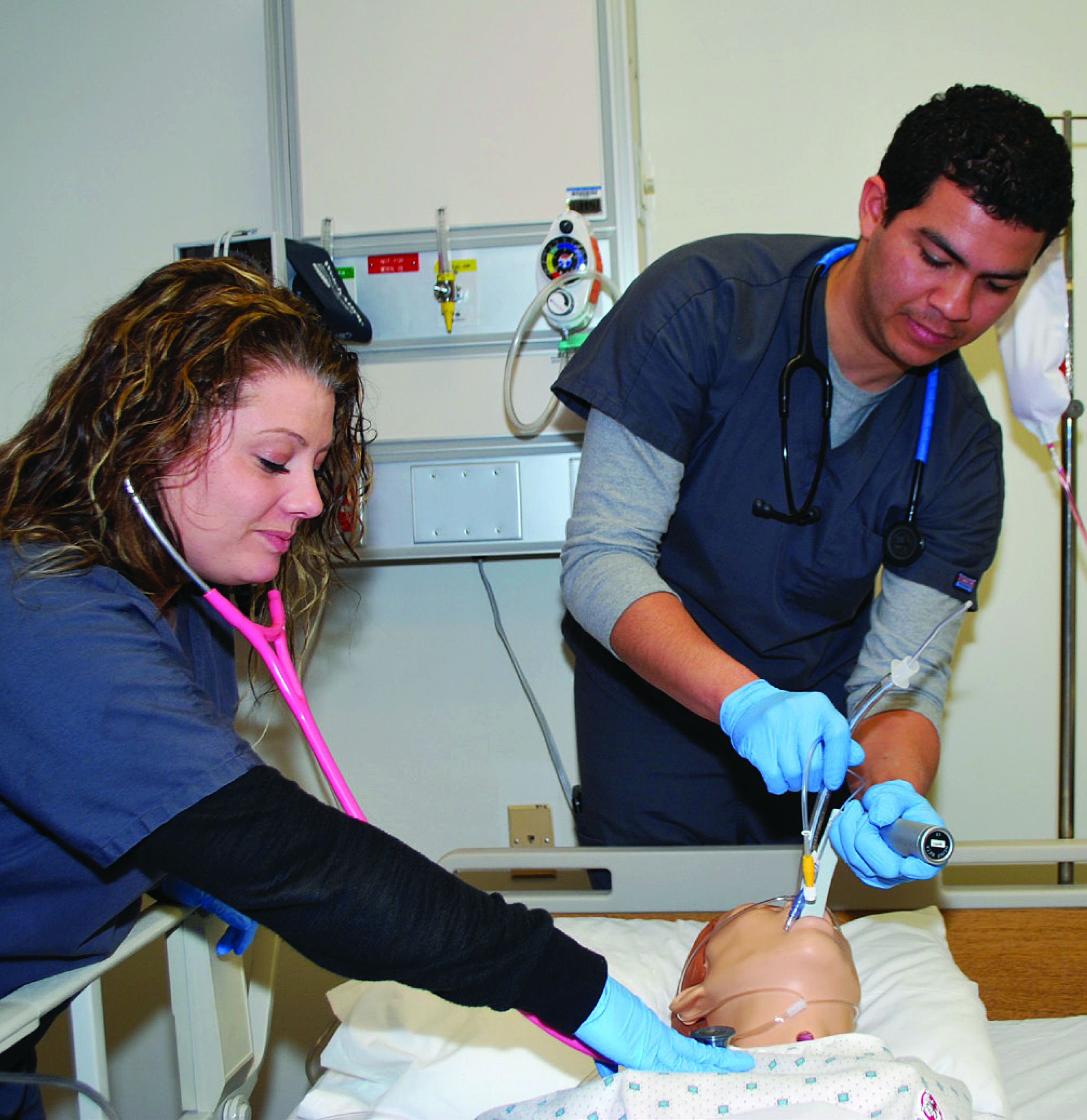Respiratory Care
COMMITMENT
MODE OF STUDY
CAMPUSES
CAREER FIELD(S)
Are you looking for a rewarding career helping patients of all stages of life?

The Respiratory Care Program prepares students to enter a dynamic and progressive healthcare profession. Respiratory Therapists work with advanced technology making it possible to help patients with respiratory and cardiac disorders. The associate degree program in Respiratory Care provides hands-on education in diverse settings, including human patient simulation, adult and neonatal/pediatric critical care, emergency care, long-term care, pulmonary rehabilitation, and diagnostic services. Respiratory Therapists are vital members of the health care team who collaborate closely with physicians providing education and support to patients with acute and chronic lung conditions.
The role of the Respiratory Therapist includes assessing, diagnosing, and treating patients with lung and breathing disorders. They consult with physicians recommending types of therapy needed based on the patient’s condition. The Respiratory therapists manage ventilators for patients who cannot breathe on their own. They respond to all respiratory and cardiac emergencies on the patient floors, intensive care units and emergency departments. They also educate patients (and patients’ families) on their lung conditions to maximize their recovery.
A Career in Respiratory Care
As a Respiratory Therapist, you can make a difference in the lives of others. It is a challenging and rewarding profession with strong projected employment growth.
Graduates of the Respiratory Care program are actively recruited and employment opportunities are generally found in health care settings, including:
- Medical Centers
- Hospitals in emergency rooms, adult, pediatric and newborn intensive care units, open heart units, cardiopulmonary rehabilitation and air transport
- Rehabilitation Centers
- Skilled Nursing Facilities
- Home Care Agencies
- Physician Offices
- Sleep Laboratories
- Medical Sales
Selective Admissions
Respiratory Care is a selective admissions program. To be accepted, you must meet additional requirements beyond general acceptance to the college.
Curriculum
See learning outcomes and required courses for the Respiratory Care program.
Resources
Learn More About Your Campus Program
Contact
Nancy LaRoche-Shovak, MS, RRT
Program Coordinator, Respiratory Care
Phone: 860-512-2714
Email: nancy.larocheshovak@ctstate.edu
Brita Chambers, MEd, RRT
Director of Clinical Education, Respiratory Care
Phone: 860-512-2716
Email: brita.chambers@ctstate.edu
Accreditation
The CT State Manchester Respiratory Care Program (A.S. degree) is accredited by the Commission on Accreditation for Respiratory Care. Information about COARC can be obtained by visiting www.coarc.com. CT State Manchester program number: 200044.
Contact
Betty Joseph-Jerome, RRT, MBA, MPH
Program Director, Respiratory Care
Phone: 203-596-8662
Email: betty.josephjerome@ctstate.edu
Accreditation
The CT State Naugatuck Valley Respiratory Care Program (A.S. degree) is accredited by the Commission on Accreditation for Respiratory Care. Information about COARC can be obtained by visiting www.coarc.com. CT State Naugatuck Valley program number: 200460.
Contact
Tracy Walker
Interim Program Director, Respiratory Care
Phone: 203-857-6917
Email: tracy.walker@ctstate.edu
Accreditation
The CT State Norwalk Respiratory Care Program (A.S. degree) is accredited by the Commission on Accreditation for Respiratory Care. Information about COARC can be obtained by visiting www.coarc.com. CT State Norwalk program number: 200090.
Additional Accreditation Information
The Respiratory Care Programs, Manchester Campus 200044, Naugatuck Valley 2000460, Norwalk 200090, Associate of Science in Respiratory Care awarded, and each campus program is accredited by the Commission on Accreditation for Respiratory Care.
CoARC accredits respiratory therapy education programs in the United States. To achieve this end, it utilizes an ‘outcomes-based’ process. Programmatic outcomes are performance indicators that reflect the extent to which the educational goals of the program are achieved and by which program effectiveness is documented. Find student/graduate outcomes for all programs
Program outcomes can be obtained by clicking a link to the CoARC website which provides outcomes data for all its accredited programs.